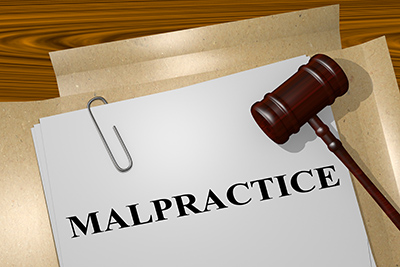“You need to get a lawyer!”
How many times have you heard that? But what if you did get a lawyer, and the lawyer is the one who caused your problem? The answer is that lawyers can be held responsible for failing to meet their duties to their clients with an action for legal malpractice. Mark N. Foster helps clients hold lawyers responsible.
Many lawyers are not willing to handle cases against other lawyers, but he will. Clients deserve the right to present legitimate claims, including claims against their previous lawyers. If some lawyers don’t like this aspect of his practice, he can live with that because Mr. Foster believes legal malpractice claims keep the profession accountable and, in the long run, enhance the legal system for both attorneys and clients.
Mark N. Foster is licensed to practice throughout the State of Tennessee, where he lived and practiced in Tennessee for over twelve years. Mr. Foster is now based in Madisonville, Kentucky, and he is licensed to practice in Kentucky. He is also licensed to practice in the United States District Courts for the Eastern, Middle and Western Districts of Tennessee and the United States District Court for the Western District of Kentucky.
Statute of Limitations
 However, it is important to be aware that, like all claims, even legitimate legal malpractice claims can be lost if they are not filed with a court in a timely manner. This is because a statute of limitations prohibits claims from being brought after a certain amount of time.
However, it is important to be aware that, like all claims, even legitimate legal malpractice claims can be lost if they are not filed with a court in a timely manner. This is because a statute of limitations prohibits claims from being brought after a certain amount of time.
Mr. Foster is counsel for the plaintiff in a legal malpractice case currently pending before the Tennessee Supreme Court, Story v. Bunstine. In that case, another lawyer brought a legal malpractice case against the plaintiff’s former lawyer, but the trial court determined that the legal malpractice case was brought too late under the facts of that case. Mr. Foster was brought in to assist in asking the Tennessee Supreme Court to hear an appeal of the trial court’s ruling and to clarify the law relating to the statute of limitations for legal malpractice claims. The Supreme Court agreed to hear the appeal, which it does in less than ten percent of cases. Oral argument was held in May, 2017, and a decision is expected in the coming months.
Decisions
The Supreme Court’s decision in Story v. Bunstine will be of great importance in determining when the statute of limitations applies to a particular case, but one thing is clear: if you think you may have been harmed by your attorney, you should consult an attorney who can assess whether you have a legal malpractice claim. And you should do so as soon as possible.
If you are an attorney and wish to refer a legal malpractice claim, he would be happy to review it. In some circumstances he can and will agree to a fee split with the referring attorney, even if the referring attorney does not commit to perform further work on the legal malpractice claim following the referral.
To consult with him about a legal malpractice claim, call me or complete the “Get in Touch” form below.”